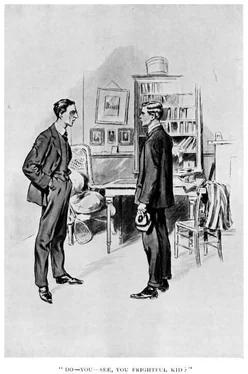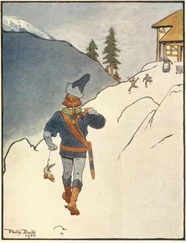Pelham Wodehouse - Mike
Здесь есть возможность читать онлайн «Pelham Wodehouse - Mike» весь текст электронной книги совершенно бесплатно (целиком полную версию без сокращений). В некоторых случаях можно слушать аудио, скачать через торрент в формате fb2 и присутствует краткое содержание. Жанр: Классическая проза, Юмористическая проза, на английском языке. Описание произведения, (предисловие) а так же отзывы посетителей доступны на портале библиотеки ЛибКат.
- Название:Mike
- Автор:
- Жанр:
- Год:неизвестен
- ISBN:нет данных
- Рейтинг книги:4 / 5. Голосов: 1
-
Избранное:Добавить в избранное
- Отзывы:
-
Ваша оценка:
- 80
- 1
- 2
- 3
- 4
- 5
Mike: краткое содержание, описание и аннотация
Предлагаем к чтению аннотацию, описание, краткое содержание или предисловие (зависит от того, что написал сам автор книги «Mike»). Если вы не нашли необходимую информацию о книге — напишите в комментариях, мы постараемся отыскать её.
Mike — читать онлайн бесплатно полную книгу (весь текст) целиком
Ниже представлен текст книги, разбитый по страницам. Система сохранения места последней прочитанной страницы, позволяет с удобством читать онлайн бесплатно книгу «Mike», без необходимости каждый раз заново искать на чём Вы остановились. Поставьте закладку, и сможете в любой момент перейти на страницу, на которой закончили чтение.
Интервал:
Закладка:
It was evident to those who woke early on the Saturday morning that this Ripton match was not likely to end in a draw. During the Friday rain had fallen almost incessantly in a steady drizzle. It had stopped late at night; and at six in the morning there was every prospect of another hot day. There was that feeling in the air which shows that the sun is trying to get through the clouds. The sky was a dull grey at breakfast time, except where a flush of deeper colour gave a hint of the sun. It was a day on which to win the toss, and go in first. At eleven-thirty, when the match was timed to begin, the wicket would be too wet to be difficult. Runs would come easily till the sun came out and began to dry the ground. When that happened there would be trouble for the side that was batting.
Burgess, inspecting the wicket with Mr. Spence during the quarter to eleven interval, was not slow to recognise this fact.
“I should win the toss to-day, if I were you, Burgess,” said Mr. Spence.
“Just what I was thinking, sir.”
“That wicket’s going to get nasty after lunch, if the sun comes out. A regular Rhodes wicket it’s going to be.”
“I wish we had Rhodes,” said Burgess. “Or even Wyatt. It would just suit him, this.”
Mr. Spence, as a member of the staff, was not going to be drawn into discussing Wyatt and his premature departure, so he diverted the conversation on to the subject of the general aspect of the school’s attack.
“Who will go on first with you, Burgess?”
“Who do you think, sir? Ellerby? It might be his wicket.”
Ellerby bowled medium inclining to slow. On a pitch that suited him he was apt to turn from leg and get people out caught at the wicket or short slip.
“Certainly, Ellerby. This end, I think. The other’s yours, though I’m afraid you’ll have a poor time bowling fast to-day. Even with plenty of sawdust I doubt if it will be possible to get a decent foothold till after lunch.”
“I must win the toss,” said Burgess. “It’s a nuisance too, about our batting. Marsh will probably be dead out of form after being in the Infirmary so long. If he’d had a chance of getting a bit of practice yesterday, it might have been all right.”
“That rain will have a lot to answer for if we lose. On a dry, hard wicket I’m certain we should beat them four times out of six. I was talking to a man who played against them for the Nomads. He said that on a true wicket there was not a great deal of sting in their bowling, but that they’ve got a slow leg-break man who might be dangerous on a day like this. A boy called de Freece. I don’t know of him. He wasn’t in the team last year.”
“I know the chap. He played wing three for them at footer against us this year on their ground. He was crocked when they came here. He’s a pretty useful chap all round, I believe. Plays racquets for them too.”
“Well, my friend said he had one very dangerous ball, of the Bosanquet type. Looks as if it were going away, and comes in instead.”
“I don’t think a lot of that,” said Burgess ruefully. “One consolation is, though, that that sort of ball is easier to watch on a slow wicket. I must tell the fellows to look out for it.”
“I should. And, above all, win the toss.”
Burgess and Maclaine, the Ripton captain, were old acquaintances. They had been at the same private school, and they had played against one another at football and cricket for two years now.
“We’ll go in first, Mac,” said Burgess, as they met on the pavilion steps after they had changed.
“It’s awfully good of you to suggest it,” said Maclaine. “but I think we’ll toss. It’s a hobby of mine. You call.”
“Heads.”
“Tails it is. I ought to have warned you that you hadn’t a chance. I’ve lost the toss five times running, so I was bound to win to-day.”
“You’ll put us in, I suppose?”
“Yes—after us.”
“Oh, well, we sha’n’t have long to wait for our knock, that’s a comfort. Buck up and send some one in, and let’s get at you.”
And Burgess went off to tell the ground-man to have plenty of sawdust ready, as he would want the field paved with it.
The policy of the Ripton team was obvious from the first over. They meant to force the game. Already the sun was beginning to peep through the haze. For about an hour run-getting ought to be a tolerably simple process; but after that hour singles would be as valuable as threes and boundaries an almost unheard-of luxury.
So Ripton went in to hit.
The policy proved successful for a time, as it generally does. Burgess, who relied on a run that was a series of tiger-like leaps culminating in a spring that suggested that he meant to lower the long jump record, found himself badly handicapped by the state of the ground. In spite of frequent libations of sawdust, he was compelled to tread cautiously, and this robbed his bowling of much of its pace. The score mounted rapidly. Twenty came in ten minutes. At thirty-five the first wicket fell, run out.
At sixty Ellerby, who had found the pitch too soft for him and had been expensive, gave place to Grant. Grant bowled what were supposed to be slow leg-breaks, but which did not always break. The change worked.
Maclaine, after hitting the first two balls to the boundary, skied the third to Bob Jackson in the deep, and Bob, for whom constant practice had robbed this sort of catch of its terrors, held it.
A yorker from Burgess disposed of the next man before he could settle down; but the score, seventy-four for three wickets, was large enough in view of the fact that the pitch was already becoming more difficult, and was certain to get worse, to make Ripton feel that the advantage was with them. Another hour of play remained before lunch. The deterioration of the wicket would be slow during that period. The sun, which was now shining brightly, would put in its deadliest work from two o’clock onwards. Maclaine’s instructions to his men were to go on hitting.
A too liberal interpretation of the meaning of the verb “to hit” led to the departure of two more Riptonians in the course of the next two overs. There is a certain type of school batsman who considers that to force the game means to swipe blindly at every ball on the chance of taking it half-volley. This policy sometimes leads to a boundary or two, as it did on this occasion, but it means that wickets will fall, as also happened now. Seventy-four for three became eighty-six for five. Burgess began to look happier.
His contentment increased when he got the next man leg-before-wicket with the total unaltered. At this rate Ripton would be out before lunch for under a hundred.
But the rot stopped with the fall of that wicket. Dashing tactics were laid aside. The pitch had begun to play tricks, and the pair now in settled down to watch the ball. They plodded on, scoring slowly and jerkily till the hands of the clock stood at half-past one. Then Ellerby, who had gone on again instead of Grant, beat the less steady of the pair with a ball that pitched on the middle stump and shot into the base of the off. A hundred and twenty had gone up on the board at the beginning of the over.
That period which is always so dangerous, when the wicket is bad, the ten minutes before lunch, proved fatal to two more of the enemy. The last man had just gone to the wickets, with the score at a hundred and thirty-one, when a quarter to two arrived, and with it the luncheon interval.
So far it was anybody’s game.
CHAPTER XXVIII
MIKE WINS HOME
The Ripton last-wicket man was de Freece, the slow bowler. He was apparently a young gentleman wholly free from the curse of nervousness. He wore a cheerful smile as he took guard before receiving the first ball after lunch, and Wrykyn had plenty of opportunity of seeing that that was his normal expression when at the wickets. There is often a certain looseness about the attack after lunch, and the bowler of googlies took advantage of it now. He seemed to be a batsman with only one hit; but he had also a very accurate eye, and his one hit, a semicircular stroke, which suggested the golf links rather than the cricket field, came off with distressing frequency. He mowed Burgess’s first ball to the square-leg boundary, missed his second, and snicked the third for three over long-slip’s head. The other batsman played out the over, and de Freece proceeded to treat Ellerby’s bowling with equal familiarity. The scoring-board showed an increase of twenty as the result of three overs. Every run was invaluable now, and the Ripton contingent made the pavilion re-echo as a fluky shot over mid-on’s head sent up the hundred and fifty.
Читать дальшеИнтервал:
Закладка:
Похожие книги на «Mike»
Представляем Вашему вниманию похожие книги на «Mike» списком для выбора. Мы отобрали схожую по названию и смыслу литературу в надежде предоставить читателям больше вариантов отыскать новые, интересные, ещё непрочитанные произведения.
Обсуждение, отзывы о книге «Mike» и просто собственные мнения читателей. Оставьте ваши комментарии, напишите, что Вы думаете о произведении, его смысле или главных героях. Укажите что конкретно понравилось, а что нет, и почему Вы так считаете.


